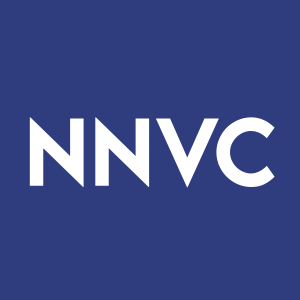NanoViricides Reports that the Phase I NV-387 Clinical Trial is Completed Successfully and Data Lock is Expected Soon
Rhea-AI Summary
NanoViricides, Inc. (NNVC) reports successful completion of Phase I NV-387 Clinical Trial in India. NV-387 has shown broad-spectrum antiviral activity against various viruses. Data lock is expected soon for further analysis. Plans for Phase II trials in progress, targeting RSV infections in adults, infants, and children. The potential market size for RSV therapeutics is estimated at $8.73 billion by 2031. NanoViricides' platform technology reduces the likelihood of viruses escaping treatment.
Positive
Successful completion of Phase I NV-387 Clinical Trial in India.
NV-387 has shown broad-spectrum antiviral activity against various viruses.
Plans for Phase II trials in progress, targeting RSV infections in adults, infants, and children.
Negative
No suitable COVID-19 participants were found, leading to the closure of the clinical trial with healthy subjects only.
No specific timeline provided for the completion of Phase II trials or regulatory approval for NV-387.
News Market Reaction
On the day this news was published, NNVC gained 6.19%, reflecting a notable positive market reaction.
Data tracked by StockTitan Argus on the day of publication.
SHELTON, CT / ACCESSWIRE / April 30, 2024 / NanoViricides, Inc. (NYSE Amer:NNVC) (the "Company"), a global leader in broad-spectrum antiviral nanomedicines, reports that the Phase I Clinical Trial of NV-387 is completed successfully and data lock is expected soon.
The Phase 1 clinical trial, protocol number KM-NVCoV2-001, which received approval from the regulatory agency in India for healthy as well as COVID-19 participants, was closed and completed in April by the Drug Sponsor and our licensee, Karveer Meditech, Pvt. Ltd., and the CRO, PristynCR, in India. The decision to close the clinical trial with healthy subjects study completed was taken because diligent efforts to identify suitable COVID-19 participants for the clinical trials were met with a notable absence of positive cases at the designated clinical trial sites, despite addition of a second site during January/February 2024.
Both the single ascending dose part of this clinical trial (called Phase 1a), and the subsequent multiple ascending dose part (called Phase 1b) have been completed with healthy subjects. There were no reported adverse effects, indicating excellent safety of both of the drug products, NV-CoV-2 Oral Syrup, and NV-CoV-2 Oral Gummies, at all of the dosage levels given to the subjects. The CRO is now in the process of completing database input of all of the subjects' clinical datasets to achieve datalock for further statistical analysis.
Phase II Clinical Protocol Discussion in Progress
As previously reported, NV-387, the active ingredient in the drug products in this clinical trial, has been demonstrated to possess an extremely broad effectiveness against multiple virus families in lethal animal studies evaluating NV-387 in comparison to available drugs. Thus, NV-387 has been found to be active against (i) Coronavirus infection, (ii) RSV infection, and (iii) Smallpox/Mpox related Ectromelia virus infection in animal models.
This ultra-broad-spectrum activity profile of NV-387 in animal models suggests that it could be a single drug effective against most if not all of the respiratory viral infections.
We have therefore initiated discussions with physicians, subject matter experts, and clinical site investigators in India, towards designing appropriate clinical trials for determining the dosing protocol and effectiveness of NV-387 towards the goal of clinically establishing the spectrum of effectiveness of NV-387. An antiviral drug such as NV-387 if found to be effective in human clinical studies would be a highly desirable drug globally. It would enable treatment of patient as soon as they present to the physician with a viral disease without waiting for a test for identifying which viral infection it is. This is reminiscent of how antibiotics are prescribed, without specific infectious agent identification, relying on the ultra-broad-spectrum of antibacterial activity.
NV-387 Development Towards Regulatory Approval for RSV Infections in Adults, Infants and Children
In addition, we have begun clinical trial design for a Phase II trial to evaluate NV-387 effectiveness in RSV patients. We plan on submitting a pre-IND application with the US FDA given the extremely broad antiviral spectrum of NV-387 in order to obtain substantive input to further direct our clinical trial design efforts. We anticipate an initial Phase II study in adults, and if successful, a Phase II/III study in RSV-infected hospitalized infants and children with the goal of approval for commercialization.
NanoViricides Drug Pipeline Addresses Several Billion Dollars in Market Sizes for Many Unmet Medical Needs
The market size of an RSV therapeutics is estimated to be of the order of
Escape of Viruses from NanoViricides Platform Drugs is Unlikely
A nanoviricide is designed by mimicking the invariant host-side features, and by attaching the mimic to a chemical nanomachine that destroys the virus without requiring human immune system assistance. These specific molecular signature features on the host cellular side do not change even as the virus mutates. Thus, no matter how much a virus changes in the field, it is unlikely to escape the nanoviricide drug because the drug is designed to mimic the very features that the virus uses to bind to and enter cells. NanoViricides Platform Technology provides this important advantage. In contrast, viruses readily escape antibodies, vaccine-induced immunity, as well as small chemical antiviral drugs, as they evolve in the field, as is well known from the COVID-19 pandemic as well as Influenza pandemics and the continuing HIV/AIDS pandemic.
A safe and effective antiviral drug that the virus would not escape by simple mutations or field evolution is the holy grail of antiviral drug development. We believe that the NanoViricides Platform technology meets this challenge.
NanoViricides, Inc. (the "Company") (www.nanoviricides.com) is a development stage company that is creating special purpose nanomaterials for antiviral therapy. The Company's novel nanoviricide® class of drug candidates are designed to specifically attack enveloped virus particles and to dismantle them. Our lead drug candidate is NV-CoV-2 for the treatment of RSV, COVID-19, Long COVID, and other respiratory viral infections. Our other advanced candidate is NV-HHV-1 for the treatment of Shingles (previously referred to as NV-HHV-101). The Company cannot project an exact date for filing an IND for any of its drugs because of dependence on a number of external collaborators and consultants. The Company is currently focused on advancing NV-CoV-2 into Phase I/II human clinical trials.
NV-CoV-2 is our nanoviricide drug candidate for COVID-19 that does not encapsulate remdesivir. NV-CoV-2-R is our other drug candidate for COVID-19 that is made up of NV-CoV-2 with remdesivir encapsulated within its polymeric micelles. The Company believes that since remdesivir is already US FDA approved, our drug candidate encapsulating remdesivir is likely to be an approvable drug, if safety is comparable. Remdesivir is developed by Gilead. The Company has developed both of its own drug candidates NV-CoV-2 and NV-CoV-2-R independently.
The Company is also developing drugs against a number of viral diseases including oral and genital Herpes, viral diseases of the eye including EKC and herpes keratitis, H1N1 swine flu, H5N1 bird flu, seasonal Influenza, HIV, Hepatitis C, Rabies, Dengue fever, and Ebola virus, among others. NanoViricides' platform technology and programs are based on the TheraCour® nanomedicine technology of TheraCour, which TheraCour licenses from AllExcel. NanoViricides holds a worldwide exclusive perpetual license to this technology for several drugs with specific targeting mechanisms in perpetuity for the treatment of the following human viral diseases: Human Immunodeficiency Virus (HIV/AIDS), Hepatitis B Virus (HBV), Hepatitis C Virus (HCV), Rabies, Herpes Simplex Virus (HSV-1 and HSV-2), Varicella-Zoster Virus (VZV), Influenza and Asian Bird Flu Virus, Dengue viruses, Japanese Encephalitis virus, West Nile Virus, Ebola/Marburg viruses, and certain Coronaviruses. The Company intends to obtain a license for poxviruses and/or enteroviruses if the initial research is successful. The Company's technology is based on broad, exclusive, sub-licensable, field licenses to drugs developed in these areas from TheraCour Pharma, Inc. The Company's business model is based on licensing technology from TheraCour Pharma Inc. for specific application verticals of specific viruses, as established at its foundation in 2005.
As is customary, the Company must state the risk factor that the path to typical drug development of any pharmaceutical product is extremely lengthy and requires substantial capital. As with any drug development efforts by any company, there can be no assurance at this time that any of the Company's pharmaceutical candidates would show sufficient effectiveness and safety for human clinical development. Further, there can be no assurance at this time that successful results against coronavirus in our lab will lead to successful clinical trials or a successful pharmaceutical product.
This press release contains forward-looking statements that reflect the Company's current expectation regarding future events. Actual events could differ materially and substantially from those projected herein and depend on a number of factors. Certain statements in this release, and other written or oral statements made by NanoViricides, Inc. are "forward-looking statements" within the meaning of Section 27A of the Securities Act of 1933 and Section 21E of the Securities Exchange Act of 1934. You should not place undue reliance on forward-looking statements since they involve known and unknown risks, uncertainties and other factors which are, in some cases, beyond the Company's control and which could, and likely will, materially affect actual results, levels of activity, performance or achievements. The Company assumes no obligation to publicly update or revise these forward-looking statements for any reason, or to update the reasons actual results could differ materially from those anticipated in these forward-looking statements, even if new information becomes available in the future. Important factors that could cause actual results to differ materially from the company's expectations include, but are not limited to, those factors that are disclosed under the heading "Risk Factors" and elsewhere in documents filed by the company from time to time with the United States Securities and Exchange Commission and other regulatory authorities. Although it is not possible to predict or identify all such factors, they may include the following: demonstration and proof of principle in preclinical trials that a nanoviricide is safe and effective; successful development of our product candidates; our ability to seek and obtain regulatory approvals, including with respect to the indications we are seeking; the successful commercialization of our product candidates; and market acceptance of our products.
The phrases "safety", "effectiveness" and equivalent phrases as used in this press release refer to research findings including clinical trials as the customary research usage and do not indicate evaluation of safety or effectiveness by the US FDA.
FDA refers to US Food and Drug Administration. IND application refers to "Investigational New Drug" application. cGMP refers to current Good Manufacturing Practices. CMC refers to "Chemistry, Manufacture, and Controls". CHMP refers to the Committee for Medicinal Products for Human Use, which is the European Medicines Agency's (EMA) committee responsible for human medicines. API stands for "Active Pharmaceutical Ingredient".
Contact:
NanoViricides, Inc.
info@nanoviricides.com
Public Relations Contact:
MJ Clyburn
TraDigital IR
clyburn@tradigitalir.com
SOURCE: NanoViricides, Inc.
View the original press release on accesswire.com







